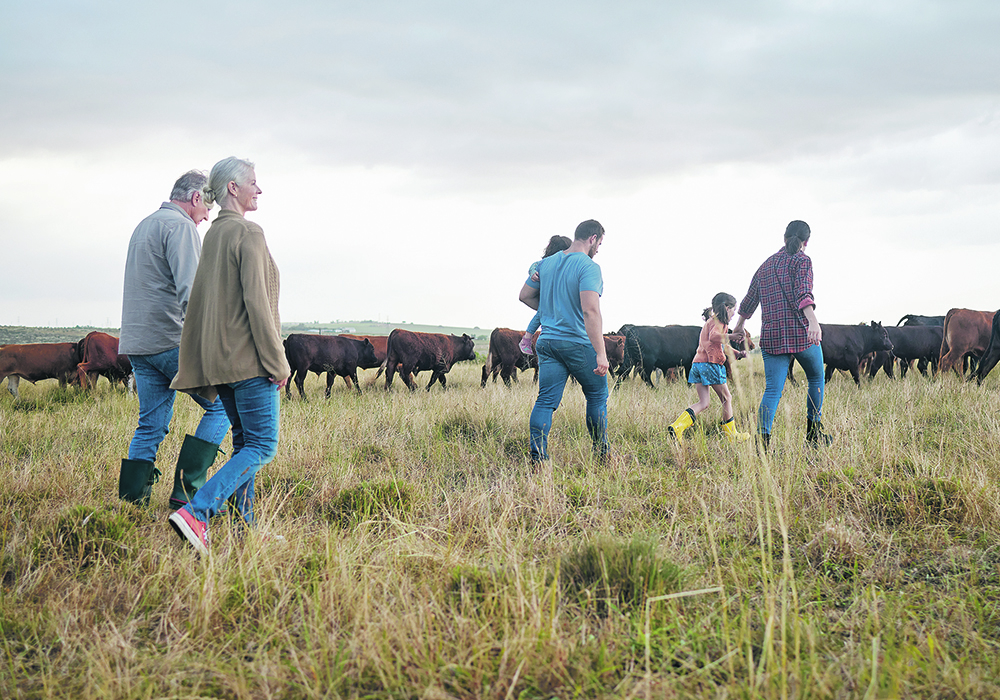Consultant says she has found that clear, consistent communication is key to navigating the high waters of farm transition
Glacier FarmMedia – Passing the torch can add stress to a farm family’s already stressful lives, but it doesn’t have to be that way, says Patti Durand of Brightrack Consulting.
Before starting her consulting business, Durand worked for five years as a business adviser at Farm Credit Canada, during which she helped more than 350 farm families make road maps for their future.
Related story in this issue:
Read Also

New program aims to support plant-based exports to Asia
Understanding the preferences of consumers in Taiwan and how they differ from Indonesia or Malaysia isn’t easy for a small company in Saskatchewan.
• How to avoid a ‘family war’ on farm succession
“Speaking with farm families has been something that’s been a privilege of mine,” Durand said to attendees of the Manitoba Beef & Forage Conference in Portage la Prairie Oct. 30. “Our challenge was to figure out what it was that was holding farm families back from advancing conversations, from being able to make transition succession plans.”
As she was researching low-stress handling techniques for livestock, it struck Durand that the same principles could be used for humans and families. Though some might object to being compared to cattle, Durand noted that, in the chute and at the discussion table, clear and consistent communication and leadership can reduce anxiety.
Knee-jerk reactions rarely lead to anything productive. It’s OK to take a break, assess situations and formulate actions and responses, she said. The method of communication can be pivotal, as can its interpretation.
“Is this a text message? Or should I actually be getting in my car and drive over there to have a conversation about this?” Durand said.
Families need reminders that everyone is on the same team, she added. It’s also helpful to assume good intentions and be more curious and less judgmental. She suggested prompts such as “tell me more” and “help me understand.” If meaning is unclear, ask for clarification.
It’s also vital for each farm team member to attend regular planning meetings to discuss the future of the farm. Each member should discuss what they need from the future, what they hope for, and what they might be worried about.
“We think we’re aiming the same direction. We assume that what we have in mind is what everybody has in mind, but without a conversation, it’s really unlikely that you’re going to achieve that alignment.”
Conversations can get more complicated if there are non-farm family members to consider, Durand said.
Good practices include scheduling an annual conversation with each recipient named in the will to share wishes and perspectives. That gives an opportunity for non-farming children to state their desires and expectations, while also getting a realistic view of the farm.
“They have kind of a fairytale memory of growing up on (the farm) and are not there,” Durand said. “They may see the income without the expenses. They may see the assets without the liability.”
In these cases, the transition plan, state of the business and inheritance agreements should be delivered from the current owners to ensure clarity on the reasons behind decisions.
This is especially important if the main farm successor is also designated as the executor, which is common, Durand said. If inheritance reasoning doesn’t come from the parents and is left until they’re gone, the successor will have the task of explaining the will and succession plan to any non-farming siblings.
Non-farming family may see the farm as a big asset and value, including a herd, equipment and other inventory, Durand noted. They may not fully understand that, as tools of the ongoing businesses, those assets are only valuable “if you cash in the chips.”
If that isn’t the intent of the succession plan, they need to be made aware of that.
Durand recommended that farm families visit thefutureleader.ca/scripts to find more prompts for conversations about succession planning with different family members.
Relationships with accountants and lawyers also play an integral role. Annual meetings with those professionals should be booked outside the busy tax season, and producers shouldn’t shy away from finding out if the people they’re working with have the expertise they need.
If not, Durand says, those professionals can likely refer clients to others who do offer the needed services.


















